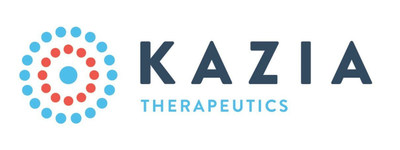PNOC CLINICAL STUDY OF KAZIA'S PAXALISIB IN CHILDHOOD BRAIN CANCER EXPANDS INTERNATIONALLY
Kazia Therapeutics Limited (NASDAQ: KZIA) announced the international expansion of its phase II study of paxalisib, aimed at treating diffuse intrinsic pontine glioma (DIPG) and other diffuse midline gliomas (DMGs). This study, sponsored by the Pacific Pediatric Neuro-Oncology Consortium, has recently opened two sites in Australia, marking its first trial in the country. The trial combines paxalisib with ONC201 and is currently active at nine sites in the U.S. and two in Australia, with plans for further international expansion. Initial data is anticipated in 2023.
- International expansion of the clinical trial for paxalisib, enhancing its global reach.
- Robust recruitment in the ongoing PNOC022 study since November 2021.
- Combination therapy with ONC201 showing significant preclinical data support.
- No FDA-approved drug treatments currently available for DIPG and other DMGs.
Insights
Analyzing...
SYDNEY, Oct. 6, 2022 /PRNewswire/ -- Kazia Therapeutics Limited (NASDAQ: KZIA; ASX: KZA), an oncology-focused drug development company, today announced that an ongoing phase II study of paxalisib, an investigational drug for the treatment of diffuse intrinsic pontine glioma (DIPG) and other diffuse midline gliomas (DMGs), sponsored by the Pacific Pediatric Neuro-Oncology Consortium (PNOC), has expanded internationally, with two sites opening recently in Australia. This is the first time that paxalisib has been the subject of a clinical trial in Australia.
Key Points
- DMGs are a group of childhood brain cancers which include DIPG, and which represent approximately
15% of brain tumours in children. Life expectancy from diagnosis is estimated to be 9-11 months, and there are currently no FDA-approved drug treatments. - The ongoing PNOC022 study (NCT05009992) combines paxalisib with ONC201, an experimental dopamine receptor D2 (DRD2) antagonist manufactured by Chimerix, Inc. (Durham, NC).
- To date, recruitment to the study has been robust since it opened in November 2021. After initially recruiting entirely at the University of California, San Francisco, the study is currently active at nine sites in the United States and two in Australia. Activation in other countries is under discussion.
"We are very pleased with progress in the study," commented Dr James Garner, Chief Executive Officer at Kazia. "Brain cancer is the leading cause of childhood cancer death, and DMGs represent one of the most challenging types of tumour. The preclinical data supporting the combination of paxalisib and ONC201 is substantial and persuasive. We look forward to seeing initial data from this ongoing clinical study next year."
PNOC022 enrols children and young adults with DMGs, a category of brain tumours that includes DIPG. The study will include separate cohorts comprising patients with newly diagnosed disease, patients who have completed initial radiotherapy, and patients who have experienced disease progression after treatment.
All patients will receive some combination of ONC201 with paxalisib. The study employs an adaptive design, in which different arms will be opened and closed based on emerging preclinical and clinical data. The primary endpoint will be the proportion of patients who are progression-free at six months (PFS6) for newly diagnosed patients, and overall survival at seven months (OS7) for recurrent patients.
The design of the PNOC022 study has been informed by laboratory research in DIPG, and in particular, by research undertaken at the University of Newcastle, Hunter Medical Research Institute (HMRI) in Australia by Associate Professor Matt Dun and colleagues, and funded by RUN DIPG, the DIPG Collaborative, Chad Tough Defeat DIPG Foundation, and the McDonald Jones Foundation.
Professor Dun's work was the subject of an oral presentation at the International Symposium on Pediatric Neuro-Oncology (ISPNO) in Hamburg, Germany, in June 2022. In the ISPNO presentation, Professor Dun outlined an extensive body of preclinical work demonstrating the synergy between ONC201 and paxalisib and described two patients from compassionate use experience who had demonstrated "dramatic reductions in tumor volume and complete resolution of disease symptoms, extending overall survival".
Kazia anticipates initial data from the ongoing PNOC022 study in CY2023.
The GBM AGILE pivotal study of paxalisib in glioblastoma is ongoing and is anticipated to produce final data in 2H CY2023. Depending on the results of the study, Kazia may use such data to support a new drug application to the FDA for marketing authorisation.
In addition, six other clinical trials of paxalisib in other forms of brain cancer are ongoing, with multiple data read-outs anticipated throughout CY2023.
For More Information, Please Contact:-
Jane Lowe
IR Department
jane.lowe@irdepartment.com.au
Phone: +61 411 117 774
Kazia Therapeutics Limited (NASDAQ: KZIA; ASX: KZA) is an oncology-focused drug development company, based in Sydney, Australia.
Our lead program is paxalisib, a brain-penetrant inhibitor of the PI3K / Akt / mTOR pathway, which is being developed to treat glioblastoma, the most common and most aggressive form of primary brain cancer in adults. Licensed from Genentech in late 2016, paxalisib commenced recruitment to GBM AGILE, a pivotal study in glioblastoma, in January 2021. Seven additional studies are active in various forms of brain cancer. Paxalisib was granted Orphan Drug Designation for glioblastoma by the US FDA in February 2018, and Fast Track Designation for glioblastoma by the US FDA in August 2020. In addition, paxalisib was granted Rare Pediatric Disease Designation and Orphan Designation by the US FDA for DIPG in August 2020, and for atypical teratoid / rhabdoid tumours (AT/RT) in June 2022 and July 2022, respectively.
Kazia is also developing EVT801, a small-molecule inhibitor of VEGFR3, which was licensed from Evotec SE in April 2021. Preclinical data has shown EVT801 to be active against a broad range of tumour types and has provided compelling evidence of synergy with immuno-oncology agents. A phase I study commenced recruitment in November 2021.
For more information, please visit www.kaziatherapeutics.com or follow us on Twitter @KaziaTx.
This document was authorized for release to the ASX by James Garner, Chief Executive Officer, Managing Director.
This announcement may contain forward-looking statements, which can generally be identified as such by the use of words such as "may," "will," "estimate," "forward," "anticipate," or other similar words. Any statement describing Kazia's future plans, strategies, intentions, expectations, objectives, goals or prospects, and other statements that are not historical facts, are also forward-looking statements, including, but not limited to, statements regarding: the timing for results of Kazia's clinical trials, and Kazia's strategy and plans with respect to paxalisib. Such statements are based on Kazia's expectations and projections about future events and future trends affecting our business and are subject to certain risks and uncertainties that could cause actual results to differ materially from those anticipated in the forward-looking statements, including risks and uncertainties associated with clinical trials and product development and the impact of global economic conditions. These and other risks and uncertainties, are described more fully in Kazia's Annual Report, filed on form 20-F with the SEC, and in subsequent filings to SEC. Kazia undertakes no obligation to publicly update any forward-looking statement, whether as a result of new information, future events, or otherwise, except as required under applicable law. You should not place undue reliance on these forward-looking statements, which apply only as of the date of this announcement. Actual results could differ materially from those discussed in this announcement.
![]() View original content to download multimedia:https://www.prnewswire.com/news-releases/pnoc-clinical-study-of-kazias-paxalisib-in-childhood-brain-cancer-expands-internationally-301642194.html
View original content to download multimedia:https://www.prnewswire.com/news-releases/pnoc-clinical-study-of-kazias-paxalisib-in-childhood-brain-cancer-expands-internationally-301642194.html
SOURCE Kazia Therapeutics Limited








